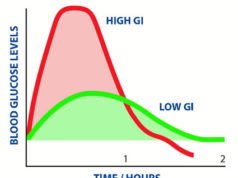
According to old school of nutritional thinking it is commonly believed that weight loss is simply the difference between “calories in” and “calories out”, which means if you take in more calories in the form of food than you burn through physical activity, those extra unburned calories are, stored as extra weight. So if you burn more than you eat, you lose weight. This theory can be accepted if your fitness goal is only focused on weight management rather than maintaining a good health, which means if you are more concerned about fatness than fitness, this theory might work for you.
A good health is little more complicated than just matching the calories you eat to the calories you burn. A study published in 2010 in the journal Medicine and Science in Sports and Exercises suggests that your body can tell the difference between a calorie burned through exercise and a calorie avoided through dieting.
Louisiana State University conducted a research on 36 moderately overweight volunteers and divided them into three groups. First group cut their calorie intake by 25 percent. Second group cut their calories by 12.5 percent and burned the remaining 12.5 percent calories by an equivalent amount of physical training. The third group was the controlled diet group and stayed the same throughout the six month study. While the first group was on calorie deficit through diet, the second group managed the calorie deficit through diet and exercises. As expected, the first and the second group lost exactly the same amount of weight—a fairly impressive 10 percent of their starting weight. Both groups also lost about 25 percent of their total body fat and 25 percent of their abdominal fat, confirming that the amount of weight you lose is a function of calorie deficit, irrespective of the deficit through diet or exercise.
But, some important differences between the two groups were discovered when the researchers took a closer look. The second group which was the diet-plus-exercise group had significant improvements in insulin sensitivity, LDL cholesterol and diastolic blood pressure which are crucial risk factors for heart disease and diabetes. These changes can’t be measured by looking in the mirror or stepping on a weighing scale.
Some fitness experts believe that weight and body mass index (BMI) are the simple measure of fitness level, but the truth is that BMI doesn’t reflects your aerobic fitness which is more important than body shape. One more interesting truth that came out from the Louisiana State University experiment was the value of systolic blood pressure and HDL cholesterol. It was found that these two parameters remained identical between the first and the second group of people which suggests that they depend on weight rather than physical fitness activity. So people who are fat and indulge in some kind of fitness activity may still be missing out some of the health benefits because of their higher weight.
To sum up, we can say that there are some key health benefits that you cannot get by eating less and being skinny, you have to exercise too. No wonder, many times we get to hear news of Bollywood actresses fainting due to dieting. The inevitable conclusion is that both diet and exercise are important to optimize your health, and you can’t ignore either of them.
[yop_poll id=”7″]






















